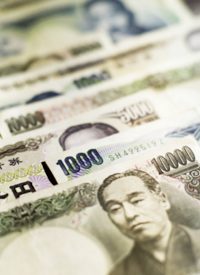
According to the terms of the deal, the two governments agreed to encourage trade directly in yen and yuan without having to use American dollars as an intermediary — the current practice. Companies in Japan and China will soon be able to convert the currencies directly. And the Japanese government also agreed to hold Chinese yuan in its foreign-reserves portfolio.
It remains unclear exactly how and when the agreement will be implemented. But according to news reports, both governments have already set up a working group to iron out the details. Officials said the move was aimed at reducing risk and transaction costs.
The new currency deal comes as the communist Chinese dictatorship has been taking increasingly bold steps to expand the international role of the yuan. The regime’s officials have also become ever-more vocal in attacking the dollar’s global reserve status, calling instead for a more international system managed by a world entity such as the International Monetary Fund (IMF).
Of course, China and Japan are the second and third largest economies on Earth. And their governments are the two largest foreign holders of U.S. government debt. So the deal has huge implications — at least in the long term.
“The run on the dollar that could sink its value and bring surprise hyperinflation to the U.S. has just become a lot more likely,” observed Alfidi Capital CEO Anthony Alfidi, who said the bilateral move would eventually mean higher U.S. interest rates.
“The change does signal to other nations that America’s main trading partners will favor the illiquidity risk of less-traded currencies over the valuation risk of holding dollars tied to unsustainable spending,” Alfidi added, pointing out that demand for dollars would take a hit. “The U.S. financial elite should take a breather from its construction of swap lines for the eurozone to pay attention to this news.”
Other commentators implied that the deal should be seen as a signal aimed at American authorities. “The larger message this pact sends is economic and it is directed at America: ‘We have no faith in your leadership,’” wrote Michael Moran in Slate, saying the two Asian giants had taken another “baby step” toward dethroning the U.S. dollar. He also suggested that, despite official denials, Japan was starting to increase its diversification out of American assets and currency.
Still, many analysts downplayed the significance of the deal, claiming it was just one tiny step on what will be a long road to ending the dominance of the U.S. dollar. As the reigning world reserve currency for decades, they say, it will take many years for the dollar to finally lose its valuable status.
“While there’s a wider story there of whether it changes the role of the dollar as a reserve currency, that’s much more questionable,” Deutsche Bank currency strategist Alan Ruskin was quoted as saying by CNBC. “It would be a very, very small step in that direction.”
But examined together with other recent announcements and current trends, the process is likely well underway, say experts. And with countless prominent world leaders and global institutions calling for an end to the dollar’s privileged position, the end might come sooner than most mainstream analysts expect.
In August, the communist Chinese dictatorship blasted U.S. policymakers. The regime called for global supervision of the dollar and eventually the creation of a global currency. In April, leaders of the so-called “BRICS” — Brazil, Russia, India, China, and South Africa — also demanded a new international monetary system.
Meanwhile, European Union officials took the opportunity offered by this week’s Japan-China currency deal to tout the imploding euro. "These are developments that show it's good that we have a unified Europe. United, Europe is the strongest economic area in the world,” claimed German Finance Minister Wolfgang Schaeuble after the announcement. “We have good chances to pursue our interests and then the opportunity to implement them in the world."
The value of the Chinese yuan is still highly controlled by authorities. Among other problems, it is not readily convertible, diminishing any potential role it may be able to assume in the global economy — at least for now. However, if the regime in Beijing were to loosen its grip over foreign exchanges, that could change quickly.
The effect of such a move would immediately reverberate across Asian markets and the world. And the U.S. dollar, along with the entire American economy, would almost certainly be the primary victims.
Related articles:
BRICS Leaders Attack U.S. Dollar
China Calls for Global “Supervision” of Dollar, New World Currency
Gadhafi’s Gold-money Plan Would Have Devastated Dollar
Aware of Price Manipulation, China Fighting Dollar With Gold
UN Steps Up Attack On Dollar, Calls for World Currency
Dumping the Dollar for Global Currency
World Leaders Attack U.S. Dollar
Virginia Considers Dollar Collapse, Gold Currency



